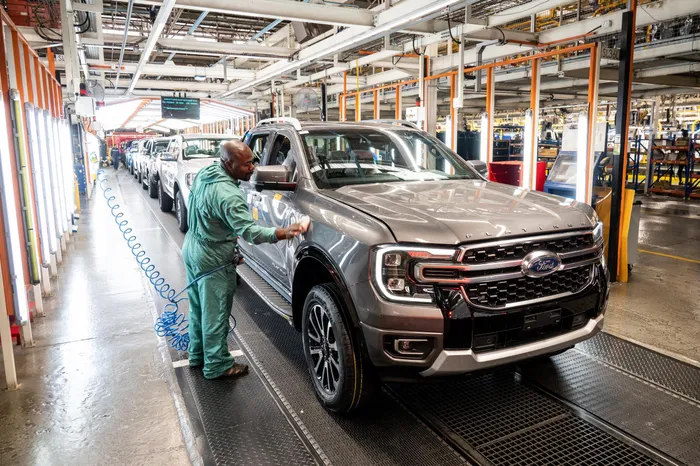
Ford SA says recent vehicle recalls should be seen as a sign of responsibility rather than failure.
Image: Supplied
Ford South Africa has faced several recalls recently, but the company insists they are less about negative publicity and more about ensuring customer safety and vehicle reliability.
Speaking to Ford South Africa and Africa President Neale Hill, he says that the National Consumer Commission has taken a far more proactive role in publicising vehicle recalls across all manufacturers.
He also admits that Ford’s name will appear in the news again. However, he stresses that this should be viewed as a sign of vigilance rather than failure.
“It’s never ideal to be in the headlines for recalls,” he said, “but they are part of a responsible process. We constantly analyse data from our vehicles worldwide, and if we identify an issue, we would rather get ahead of the curve and ask customers to bring their vehicles in before it becomes a risk.”
Software at the centre of recalls
Modern cars are increasingly defined by their software, and according to Hill, a growing number of recalls involve digital systems, updates, or the verification that updates have been correctly installed.
“As technology advances, more recalls are software-related than hardware-related; sometimes it’s less about replacing parts and more about making sure the right software is in place and functioning correctly.”
How problems are detected
Ford uses a number of ways of monitoring to catch potential issues.
All Ford vehicles sold globally come with embedded modems, providing real-time data that can flag unusual patterns. In addition, the company keeps a close eye on warranty claims and parts replacements.
Because many components and software systems are shared across markets, a problem identified in Europe or Australia can quickly be investigated in South Africa. Once a certain threshold is reached, Ford conducts a deeper analysis, which may result in a recall.
“We track data very carefully,” he said. “If it crosses a point of concern, we escalate the investigation. If necessary, a recall is then triggered.”
Different levels of action
Not all recalls are equal. Some are relatively minor and can be addressed at the customer’s next scheduled service.
Others are flagged as “owner-notified programmes”, where customers are asked to bring their vehicles in even though the fault is not safety-critical. The most urgent category is the safety recall, which can range in severity and demands immediate action.
“We work closely with global authorities, including the National Highway Traffic Safety Administration in the United States and the National Consumer Commission in South Africa, to ensure recalls meet regulatory standards.”
Customer impact and perception
While Ford acknowledges that frequent recalls can create a perception problem, the company argues that transparency and action should reassure customers rather than alarm them.
“There’s always a risk of negative perception,” Hill admitted. “But the peace of mind we want customers to take is that we are continuously improving and making sure they’re not put in harm’s way. Getting the right parts or software into vehicles as quickly as possible is absolutely critical.”
Finding affected vehicles
As vehicles age and change ownership, the most recent recall covers models dating back to 2018 many of which may now be on their third owner, tracking them is not always easy.
“Typically, South African customers keep a vehicle for four to six years, but we try to track them through our dealer network by monitoring VIN numbers whenever a vehicle comes in for service or repair.
“This is also why servicing at a Ford dealership is important. One of the first steps technicians take is to check for any open field service actions, our internal term for recalls, on every vehicle, regardless of its age.”
Ford also conducts proactive outreach when necessary, contacting customers directly if recall notices go unanswered.
In addition, owners can check for themselves. By entering their vehicle identification number on the Ford South Africa website under the “Services” tab, they can see whether their car has any outstanding campaigns.
Safety before image
Ultimately, Hill says that recalls should be viewed as a sign of responsibility rather than failure. “There is always that risk. A brand that appears more frequently in recall headlines may be viewed negatively. But what’s important for customers to understand is that recalls are ultimately about safety, responsibility, and continuous improvement.
“They demonstrate that we are actively monitoring vehicles and ensuring issues are addressed before they put customers at risk and ensuring that our vehicles remain reliable long after they leave the showroom floor,” Hill concluded.
Related Topics: